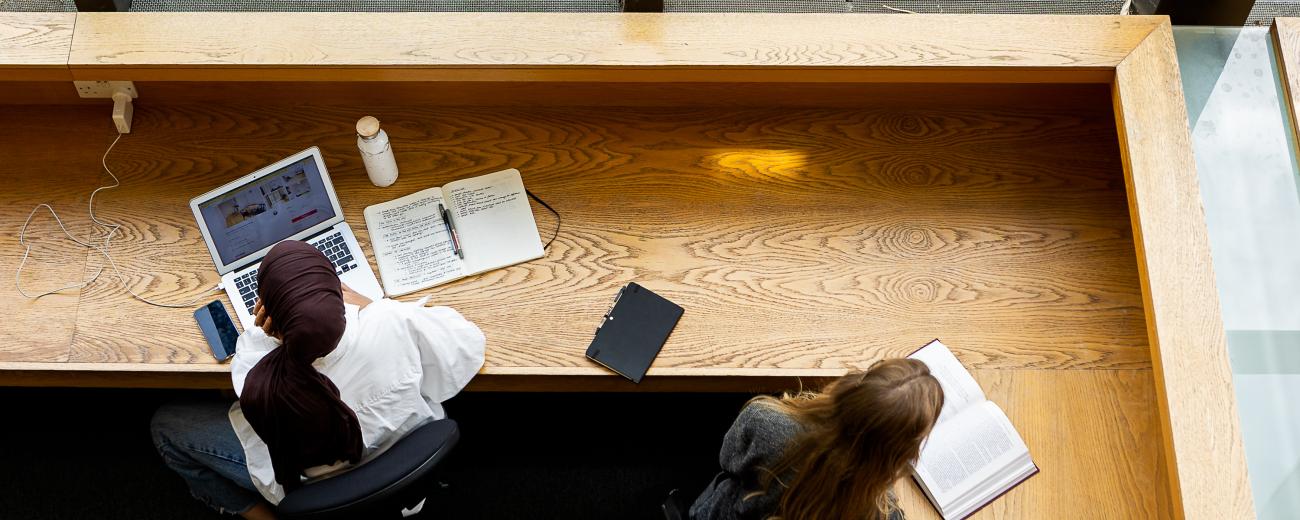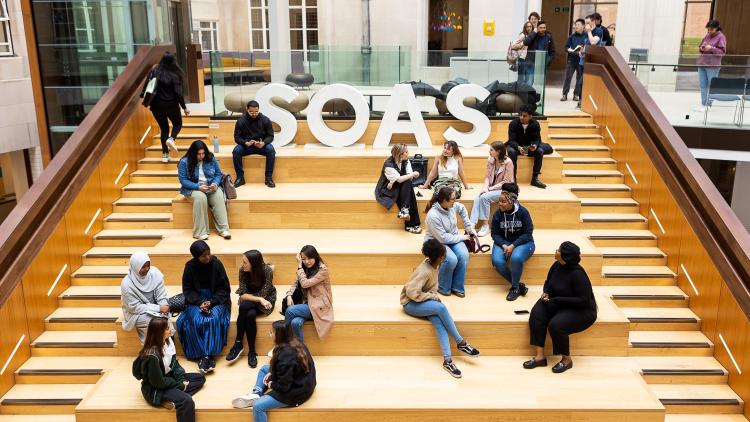How to build effective study habits and prepare for exams


We asked SOAS students to share their advice for setting study habits and sticking to them throughout the year, plus how they prepare for the all-important exam season.
It's a new term and a new year. Whether you're into new year's resolutions or not, it's always a worthwhile idea to reflect on your study habits and see what's working and what may need some tweaking. Our student ambassadors are here to share their study strategies. Meet Ankur, Annabel, Ella and Zainab - who all offer practical advice on daily habits, balancing life and study and how they plan to succeed in term two and beyond.
Make a (realistic) schedule and stick to it
Ankur: “My top tip to set a study habit is to incorporate studying as part of your daily schedule. Do you read after dinner or work on an essay before a run? Be realistic and regular. This way, you can remove the stressful part of scheduling a task, where you have to look for a certain time slot in your timetable. Regularity is the key!”
Annabel: "I balance my schedule by doing the most mentally taxing things throughout the morning (for example, vocab and grammar work for a language), and then I focus on lengthier pieces in the evening like essays. This year, I'm going to try and allow more time for a relaxing evening, making more time for music and reading."
Prioritise the most challenging topics and practise active recall techniques like flashcards, mind maps, past papers under exam conditions and essay plans.
Zainab: "With class times varying day to day, I aim to study for a few hours between classes and do one relaxing thing each day, such as see a friend, go for a walk or focus on a hobby."
Ella: "My top tip is to review slides the day before lectures and do the task after lectures on the same day. Always leave time before deadlines so you have time to proofread without the stress of a looming deadline."
Break up studying into manageable chunks
Ankur: "When prepping for exams, it is true, especially for languages, that you should not leave things to the last minute. I am learning three languages at the moment, and have found that it is a very good idea to set aside a certain amount of time to study a particular language every day.
It could range from thirty minutes to about an hour, depending upon where you are in your language learning stage and how intensive the course is. For instance, for Persian, my main language, I usually spend an hour every day, about five days a week. But for Middle Persian, the secondary language I am taking, I usually do half an hour a day, four days a week. To retain the vocabulary and grammar of a language, you have to put it into your passive memory. This way, the exams won’t sneak up on you, and with little revision, and not to speak of the terrible stress, you will perform very well."
Zainab: "The lead-up to exams can be extremely stressful. Things that help the most are creating a study schedule with allocated time for each module and breaks to stay consistent and prevent burnout. It's also useful to prioritise the most challenging topics and practise active recall techniques like flashcards, mind maps, past papers under exam conditions and essay plans."
Make sure to relax, enjoy your hobbies and get a good night's sleep
Ella: "I manage to both keep my major in mind and relax by visiting museums and galleries. I also arrange a few hours for relaxing before bed to ensure I get a good quality sleep."
Zainab: "Having a healthy lifestyle with the right amount of sleep, exercise, and a balanced diet also helps to prevent exhaustion during exam periods. It's a marathon, not a sprint."
Don't be afraid to ask for help
Ella: "Everyone is different. To find the most suitable and efficient way, get to know your habits and what works for you. Once you've tested it, make a schedule and follow it."
Annabel: "Don't be afraid to get things wrong! That is part of the learning process. Learn to ask from peers who are doing well or professors for a specific module. Let them know what you’re doing and see if they can advise. It’s best not to isolate yourself when setting powerful and necessary foundations."
Zainab: "Overall, try to enjoy the process and plan something to look forward to after exams are over!"
If you're looking for support in your studies, contact the Student Information Desk (SID) for self-study resources, tutor support and advice.
About the authors
Our student ambassador contributors are Zainab Lakda (BA International Relations and Arabic), Annabel Ludhra (BA International Relations), Ankur Desval Fehrani (MA Iranian Studies and Intensive Language) and Ella Linshu Shen (MA Cultural Studies).



